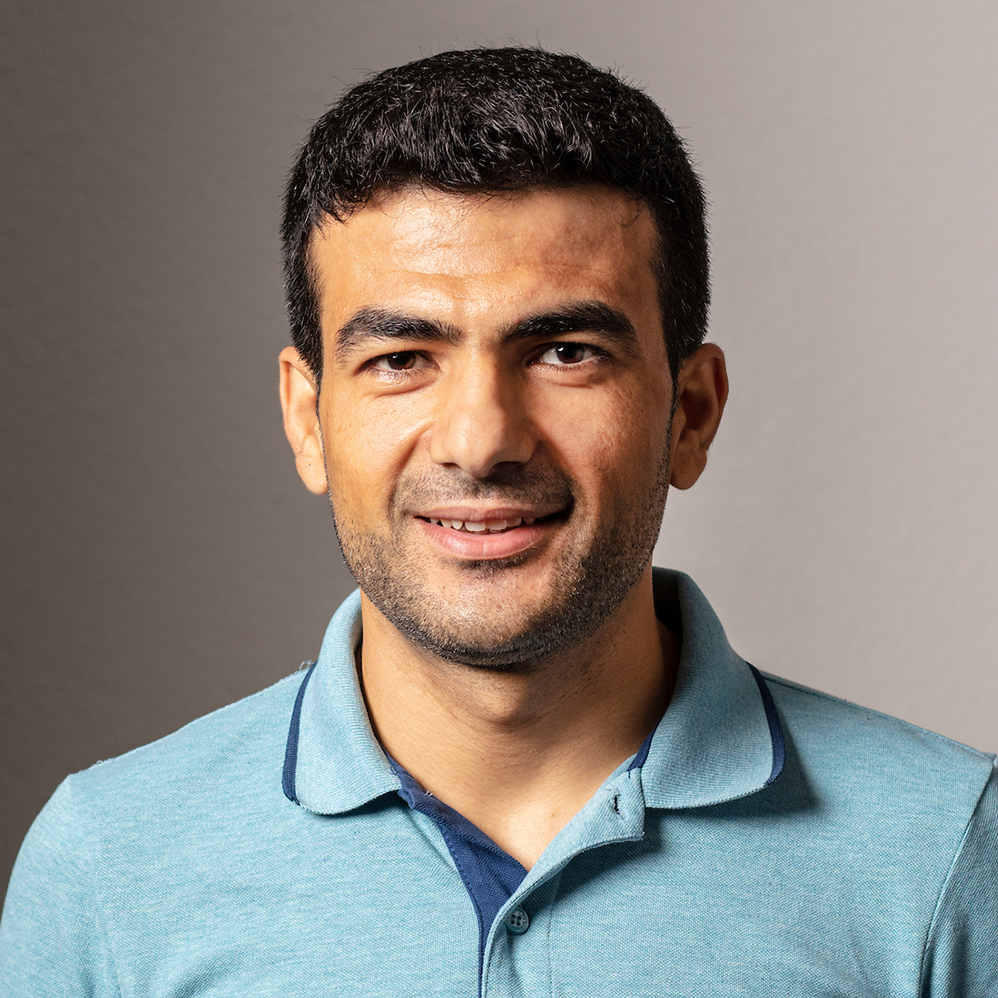
Gilgamesh goes global: the world’s oldest myth hits the stage

A Swiss theatre company has teamed up with a Palestinian troupe to re-tell the story of Gilgamesh. They present the play in a Babel of languages and touch on such timeless issues as the abuse of power and the hope that friendship can offer.
“His leg is the size of half an electricity pylon,” says a Palestinian actor in Arabic. A Swiss actor jumps in, adding in German: “His shoulders are six cubits wide.” Even if parts of the text remain untranslated, the spectators maintain a grasp of what is happening on stage, regardless of whether they understand Arabic, German or English. The actors translate for one another and tell further bits of the story with music and dance. Sometimes the audience can just lose itself in the songs, be they in Arabic or German.
At one point in the play, an actress abruptly interrupts a scene in which she is supposed to seduce Gilgamesh. She objects: “I can’t go on with this. Why does a man have to play the role of Gilgamesh?” The other women give her their support. In their ensemble work the actors do not just switch between languages – they also cross a range of historical periods and civilisations. The ancient myth of Gilgamesh is productively subverted by the present.
Swiss funding
The variety of languages on the stage has a practical purpose. Spectators in the Swiss capital Bern, where the play had its premiere this month, can follow the story as well as those who will catch the production when it moves to Ramallah later this year.
Three years ago, the Al-Kasaba TheatreExternal link in the central West Bank city obtained a grant from the Cairo office of Pro HelvetiaExternal link, the Swiss Arts Council, to collaborate with a Swiss theatre company. Firas Abu Sabbah, the director of Al-Kasaba, teamed up with Swiss director Dennis Schwabenland and his company “thecodesExternal link” to take on a rather daunting task: re-telling the Epic of Gilgamesh.
The ancient poem tells the story of a legendary king who ruled a small Sumerian state called Uruk around 3000 B.C. At that time Uruk (present-day Warka in southern Iraq) was the centre of Sumerian civilisation. Gilgamesh, two-thirds god and one-third man, is a ruthless autocrat. So Aruru, the mother goddess, decides to create another being, the nomad Enkidu, in order to rein in Gilgamesh.
The epic, believed to be the world’s oldest written story, deals with thoroughly modern and relevant issues, as Schwabenland points out. “It deals with power structures, comradeship, and the desire for immortality,” he says.
Take a look at the play rehearsals here:
The epic today
In the exchanges between the Swiss and Palestinian actors on stage, issues like dictatorship, power, women’s rights and the plight of minorities are given an airing. Yet it is always through personal perspectives and in light of different lived experiences. The discussions that happen over the course of preparing and rehearsing eventually find their way into the production.
Schwabenland recounts how in 2019 he travelled to Ramallah with the core artistic team of “thecodes”. They planned to meet the actors of Al-Kasaba Theatre in person and prepare the play together.
Like many creative projects, this one was held up by the Covid pandemic. It wasn’t until a month ago that the Swiss team was able to get back to Ramallah to hold rehearsals there. After an attempt to rehearse via video conference in 2020, they decided to suspend further work until they could meet face to face.
“It was very important to meet in person, because this was not the kind of project you could implement in virtual mode,” says Schwabenland.
The Swiss theatre group were aware of the difficult circumstances in Ramallah, the long waits at Israeli checkpoints, and the questions they might face on their way back to Switzerland.
“The fact that we knew all about this before we went was not very helpful,” says script adviser Magdalena Nadolska Bremgartner. “We were still shocked from time to time and even ended up in tears after visiting a museum about the occupation of Palestine.”
“The team from Switzerland had to see us in Ramallah”, explains Abu Sabbah. “They had to see what it’s like to live there. And now we are over here, because in this play we will tell our personal stories together.”

More
Newsletters
Importance of collaboration
For two weeks, the team from Ramallah has been rehearsing with the Swiss actors in Bern.
“Al-Kasaba Theatre depends on collaborative efforts like this,” says Abu Sabbah. He emphasises that he and his actors benefit enormously from this type of project. “In Ramallah there is not much theatre going on, so it is important to work with theatre companies from other parts of the world to broaden our experience.” That means, above all, being able to work in a conflict-free environment.
Choosing to stage the Epic of Gilgamesh is to choose hope. One key scene in the story is a long, desperate fight between the domineering king and the wild Enkidu. But the struggle comes to nothing. No victor emerges, and the contest remains undecided. The two enemies become companions who end up sharing adventures together.
Gilgamesh plays in BernExternal link this month before travelling to Basel and Winterthur in the autumn, and to Ramallah later this year.
Translated from German by Terence MacNamee/gw

In compliance with the JTI standards
More: SWI swissinfo.ch certified by the Journalism Trust Initiative































You can find an overview of ongoing debates with our journalists here . Please join us!
If you want to start a conversation about a topic raised in this article or want to report factual errors, email us at english@swissinfo.ch.